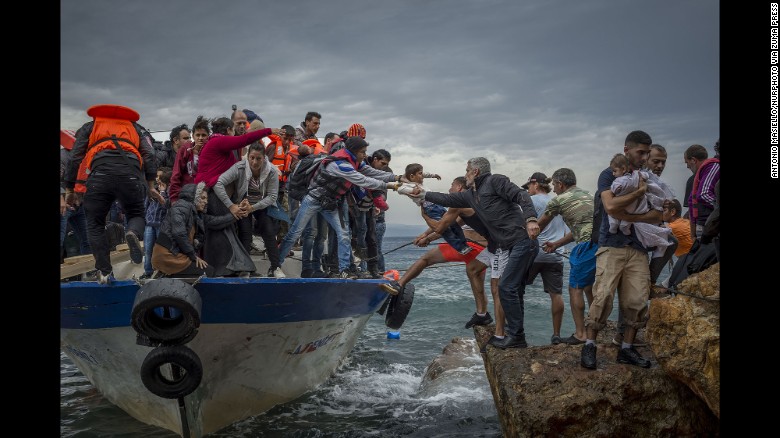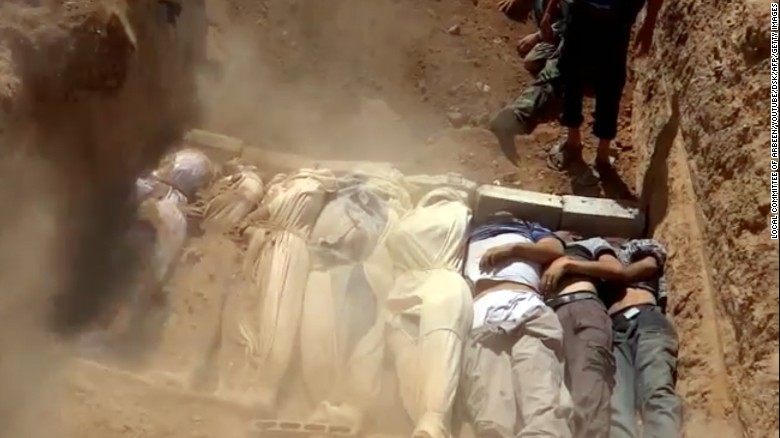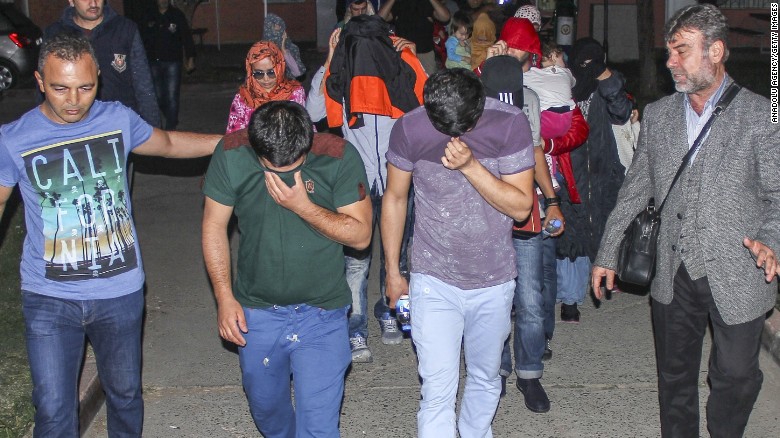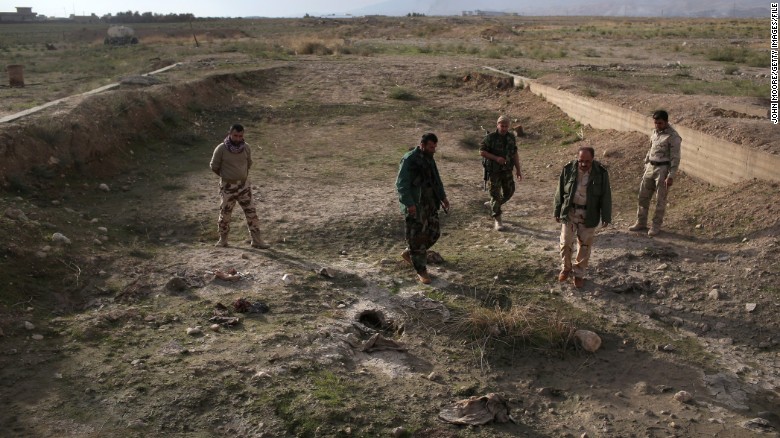Unimaginable horrors from five years of war in Syria

It began as a protest over the ill-treatment of boys beaten for graffiti, in an atmosphere of change and hope as the Arab Spring spread through the region. Now, five years in, the Syrian civil war has drawn much of that region into its spiral of despair, and fallen to depths of savagery nobody imagined would be possible.
The West has ignored repeated pleas to intervene, but steadfastly kept a distance, the echoes of the ill-fated intervention in Iraq still palpable. But five key depths to which this war has fallen stand out.
1. The use of chemical weapons
It was Barack Obama's infamous "red line." If chemical weapons were used by the Syrian regime, Washington would, in an unspecified way, intervene. Syrian President Bashar al-Assad, by all accounts, did use chemical weapons, on a massive scale, in the Ghouta suburbs near Damascus. Even the U.N. tests that confirmed sarin use did not spark a U.S. military intervention. Critics of Barack Obama today still call the decision not to attack a weakening of American influence in the region. But at the same time, it did exploit a Russian initiative to diplomatically broker the Assad regime to surrender pretty much all of the chemical weapons it had always denied it had. Regardless of the outcome, the world watched as sarin gas took the lives of over 1,000 civilians, some caught when the gas — heavier than air — sank into the basements where they had sought shelter.
2. Radical Islam on Europe's doorstep.
Europe and the United States sent troops to Afghanistan to fight the Taliban in the past decade. But when foreign jihadists began to flow, regularly and heavily, into southern Turkey and across the border to join the burgeoning jihadist movement, NATO did not mobilize. In fact, we watched in a southern Turkey airport when men from Mauritania, Leicester in the United Kingdom, Egypt and Libya all arrived on flights, purportedly to assist in charity work. An ISIS smuggler told us the cross-border trade to join the jihadist movement was booming. It happened in plain sight, without much attention, and continued until it was too late — when ISIS had thousands in their ranks.
3. The massacre of Yazidis: a 'genocide'
The Holocaust, Bosnia, Rwanda. The list of massacres the West swore would never happen again is long. But when ISIS moved toward the Yazidi population near Mount Sinjar in neighboring Iraq, it appeared one spillover from the Syrian war might have been the systematic extinction of an ethnic group. Women were used as sex slaves, children trained as soldiers, men simply killed en masse. U.S. officials announced this week that they consider the ISIS actions a "genocide."
4. Europe's biggest refugee crisis since World War II
It took four years of desperation and misery to pile up before a huge number of Syrians, clear finally in their minds that their homeland would not be a place they could call home again for years to come, decided to move. Hundreds of thousands fled in boats, on foot, across the European mainland, in a traffic in human souls that not even the collapse of the Soviet Union managed to inspire. It has had a catastrophic impact on public opinion toward migrants in many European countries, bringing out the worst prejudices as populations struggle to embrace newcomers on a scale they haven't seen before. It also caused Europe's neighborhoods to become full of sniping and razor wire as the borders closed. And it has also been catastrophic for the Middle East: Those fleeing have often been the resourced and monied middle class. They may never return. So we can now add to destruction and devastation the absence of a professional class in Syria to help rebuild: to be the dentists, architects and small-business owners of the future.
5. We do not know how many people have died
It should be the simplest fact available; the one unassailable dignity a war's dead can have, to be counted. But it is not clear at this stage how many Syrians have died in the conflict. That is the fault of the war's savagery, limiting the gruesome accounting that can be done. It is also down to the secrecy with which the regime and other factions keep their casualty rates. But the United Nations gave up as early as August 2014 on the task of quantifying the dead, when their last count got as high as 191,369. They have since suggested perhaps 250,000 have died, while other unofficial counts estimate 470,000. This even in the most videoed and social media tabulated war in history. And it remains unclear how high the estimated death toll will rise.
Политика конфиденциальности | Правила пользования сайтом












